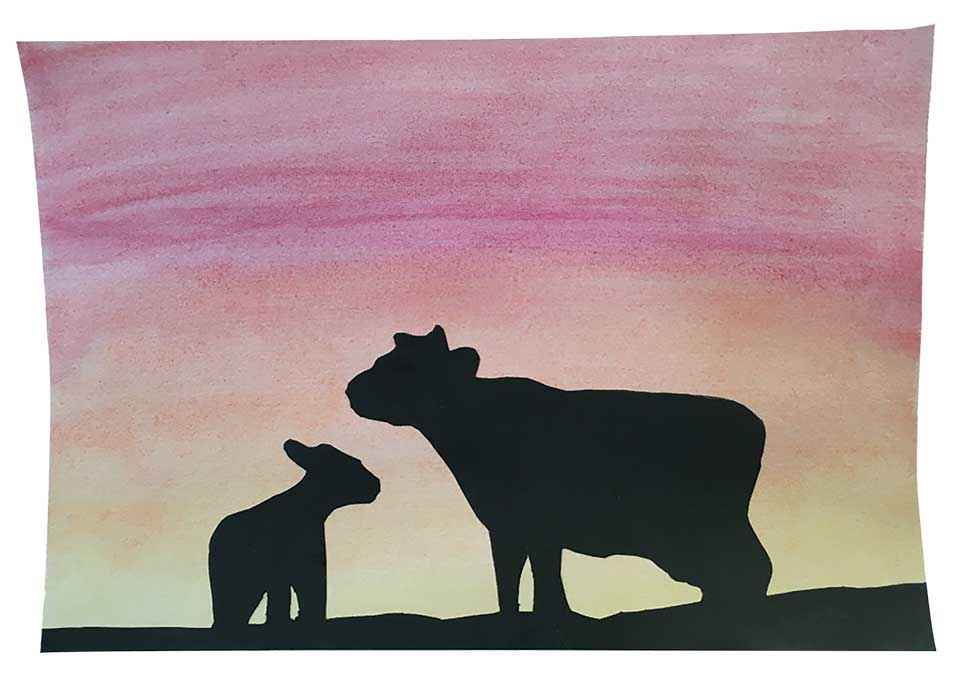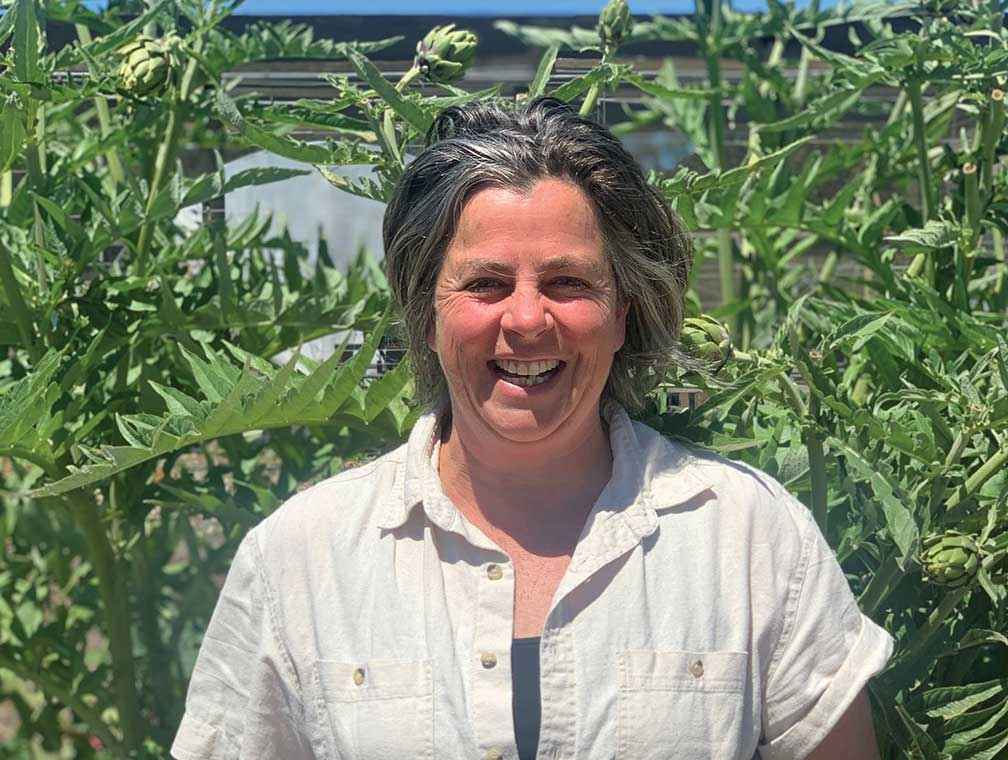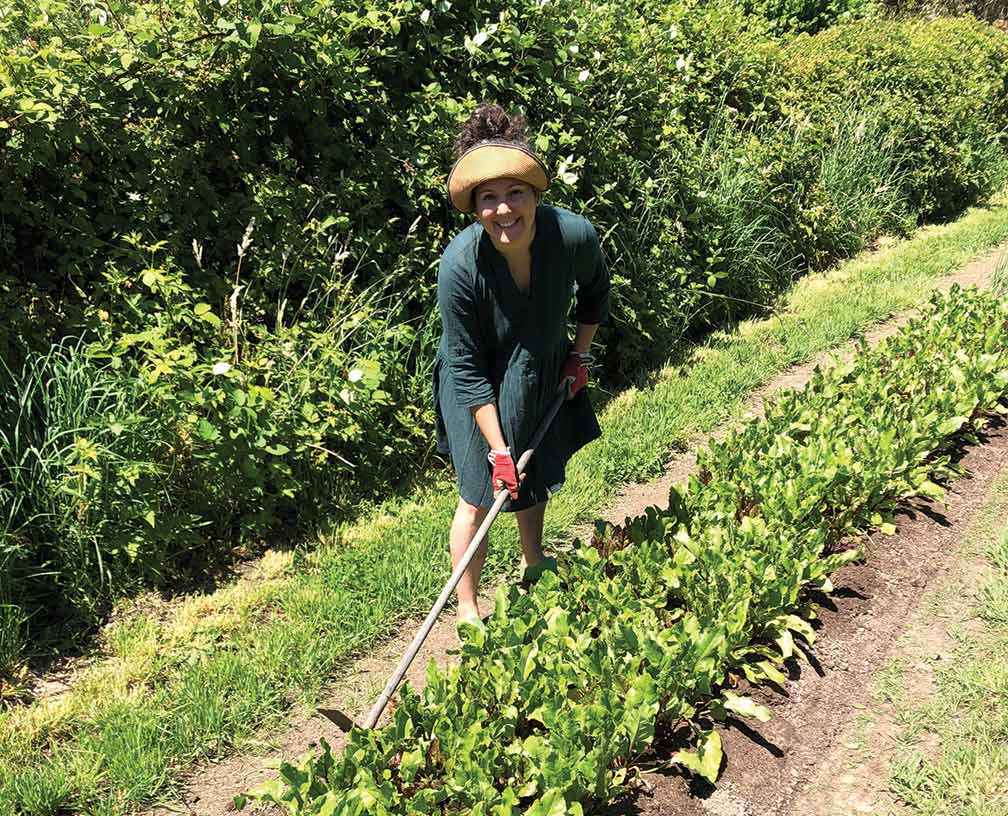Victorian Landcare Magazine - Summer 2021, Issue 80

It takes a lot to feed a growing city. Meeting the nutritional needs of Melbourne’s more than five million residents requires access to a wide variety of nutritious locally grown food. Farmers strive every day to produce sustainable food and fibre to support this growing community.
Many people who live in cities are disconnected from local farms and lack knowledge about how food and fibre is produced.
Added to this, the farming sector is ageing and can provide rich career opportunities that many young people are unaware of.
The Farms2Schools program has been using online school incursions to provide primary and secondary students across the greater Melbourne area with insight into how agricultural products get from the paddock to their plate.
The program was delivered by the Port Phillip & Westernport CMA in partnership with AUSVEG VIC – the peak industry body for the Australian vegetable and potato industries – with support from the Victorian Government’s Working for Victoria initiative.
Three skilled professionals were hired to deliver the program across the Port Philip and Western Port region. Camille Coleman has a background in agriculture and grew up on a small farm in NSW; Osman Sobrie has a Masters in Community Development and delivers grassroots projects; and Narelle Debenham is a local teacher and Junior Landcare educator.
The program was originally designed to deliver incursions to primary and secondary schools, where farmers visited schools to talk about their farms. Schools would also have been able to take students on an excursion to tour a local farm. When COVID-19 restrictions were introduced in the greater Melbourne area, Farms2Schools had to quickly pivot and design an innovative online program with virtual incursions delivered by digital platforms.
This was also a big shift for the farmers taking part in the program. While tentative at first, support from the Farms2Schools program officers assisted many of the participating farmers to develop the confidence to present online, record their own videos and even live stream their incursions from the paddock with virtual walk and talks.
The program has also been a huge learning curve for the students. They gained firsthand knowledge from farmers across Melbourne’s food bowl on where their produce comes from, as well as learnt about supply chains and how food and fibre can be exported to other countries and sold locally through farmers’ markets and at the farmgate. Students were able to virtually experience life on a farm – watching lambs being born and beehives being opened.
Special development schools have also participated in the program. In addition to online presentations, these schools were provided with produce boxes to support their learning needs. This allowed the students to learn through sensory activities such as making honey sandwiches, tasting fresh produce and smelling lavender.
The program has also worked to support STEAM (science, technology, engineering, arts and maths) learning opportunities as part of the curriculum.
Teachers have created innovative activities for students to continue to engage with agriculture and consider the many career opportunities the industry offers.
Some examples include art projects, slug and snail trap inventions and writing letters to the farmers. Several schools hosted an entire farm week, with the whole school community participating in Farms2Schools.
COVID-19 restrictions prevented some of the program’s resource development (such as videos showcasing farm life) from going ahead, but farmers got creative and produced their own home videos that schools can now use to continue learning in the classroom.
The Farms2Schools program finished at the end of term four in 2020, but it has left a legacy of resources for teachers to continue to engage their students in conversations about the importance of sustainable agriculture. In addition to the videos, student activity sheets focused on the paddock to plate process and farm ecosystems services such as integrated pest management from beneficial insects, insectivorous birds and micro bats.
An interactive virtual farm will further enhance student learning with a focus on how farms manage their natural assets
such as soil, water and biodiversity.
After their incursion with local apiarists, teachers from Dromana Primary School said “the combination of live action and photographs was excellent. The students enjoyed seeing the process of honey extraction and the opportunity to ask questions.”

Above: Sophie O’Neil from Torello Farm was one of the presenters at the Farms2Schools online farm incursions.
Altona Primary School students loved the fresh vegetables they were given from Velisha Farms. “We know that farmer Catherine Velisha is passionate about growing cauliflowers and we could taste the deliciousness. We can’t wait to meet you in person in the future,” the teachers said.
Derinya Primary School undertook an incursion with Gillian Goudie from Gippslamb. The teachers commented that Gillian was friendly and easy to understand. “She had a lovely manner with the students and showed them some lovely aspects of her beautiful farm and its animals. It was also great to see and hear about the sustainable practices that operate throughout the farm.”

Above: Isabella Amouzandeh from Sugarloaf Produce was an enthusiastic Farms2Schools presenter.
Learning comes in many forms. 2020 showed us the importance of technology, creativity and adaptability. Despite COVID-19 restrictions, the Farms2Schools program delivered more than 100 incursions to more than 5500 students. The students have a new understanding and appreciation of farming and the role they could play in its future. Schools have applauded the program, with 98 per cent of teachers recommending it.
Karen Thomas is Regional Agriculture Facilitator at the Port Phillip & Westernport CMA. For more information about the Farms2Schools program and to access the resources go to www.ppwcma.vic.gov.au/farms2schools